
views
X
Research source
Since your memory is so integral to your daily life, you may need to evaluate both short-term and long-term from time to time to ensure that they are functioning at the highest level they can and to catch problems or deficiencies before they progress.
Noticing Changes in Your Memory

Recognize disruptions in your daily life. When your memory changes, it will disrupt your life. You may notice yourself forgetting recently learned facts, forgetting important events, or not remembering dates. This will make your life harder or cause problems in your daily activities. This may manifest in an increased need to write things down, rely on electronic devices to keep track of things, or have others remind you of important events and dates. Your family and friends may call attention to these issues if you don’t notice them yourself.
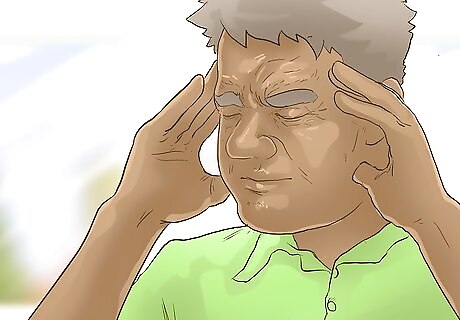
Notice a difference in your problem solving abilities. When you experience memory problems, you may notice changes in your ability to do every day problem solving.This will likely affect your ability to follow through with a plan, develop solutions to problems, or concentrate on the task at hand This may manifest as difficulty with paying your monthly bills, trouble playing a favorite game, or difficulty following recipes.

Interpret your productivity. When your memory starts to fail, your ability to follow through with your tasks at work and at home will start to diminish due to an inability to remember the things you need to do. At work, you may fall behind on your projects or stop fulfilling your work duties to the best of your abilities. At home, you may fall behind in your responsibilities or forget to take care of certain family tasks. This can cause problems with your boss and coworkers or cause tension with your family.
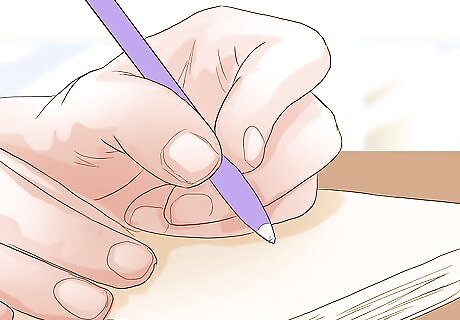
Recognize if you lose things. When your memory starts to go, you may start to lose things more often. You may misplace your keys more often than before, forget where you parked your car when you are out, or find where you left the stuff you use every day. Doing this every so often is common, but if it becomes a continual problem, it may point to some sort of memory problem.
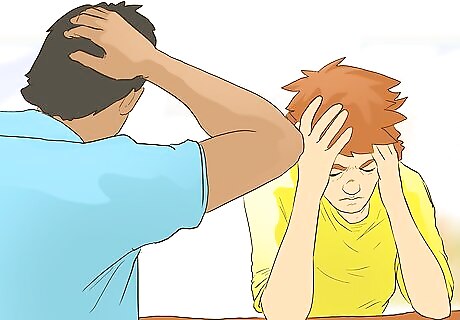
Keep track of how often you forget things. Everyone forgets things from time to time, especially as people age. However, if you notice that it happens more often than before, especially if it is numerous times a week, your memory may be getting worse. Keep a list of how frequently you forget things so you can evaluate it over time. Write down each time that you forget something that you typically should remember.

Determine normal memory problems. Every memory lapse you have may not be a sign of memory problems. There are situations where lapses in memory are not a sign of a larger memory problem but are instead caused by situational issues. These situations include: You’re starting new medication Only you are worried about occasional slip-ups, but your family hasn't noticed a change in your memory You’re constantly anxious or stressed You have low sugar levels You’re constantly stimulated and/or distracted
Recognizing If There Is A Problem

Notice changes in your mood. If you are having memory problems, you may become annoyed or angry over time. This is due to your inability to remember every day things or perform everyday activities. This causes frustrations will build up over time, which causes a change in your overall mood. You may not even notice the change in your mood. Other people may point out your change in mood or how you are acting towards others.

Determine if you changed your actions. When you are beginning to suffer from memory problems, you may have changed your normal routine to compensate for your memory deficiencies. This can include making detailed lists of things you need to do, avoiding calling people because you have a hard time remembering what was said, or eating out more because it is harder to follow or remember recipes.

Ask your family or friends if your actions have changed. If you want to evaluate your memory, you may need to ask your friends or family if they have noticed changes in your memory or your actions. Those around you may be able to tell before you notice it yourself. This may include: Telling stories over and over again Asking the same questions multiple times Relying on them to remember things for your schedule

Notice a change in other’s behavior. The way others act towards you can help you determine if your memory has changed. Your friends and family may start taking over conversations if you forget something or are repeating yourself, may take over tasks you’re used to doing by yourself, or covering for you if you forget to do things. This may be subtle or progress over time.

Recognize trouble with making decisions. If your memory is changing, you may find yourself having trouble making decisions. This is because you can’t remember each of the choices or you may have trouble distinguishing between different solutions or decisions. This can be small or large decisions, ranging from choosing what to wear in the morning to making a change in your job.
Testing Your Memory
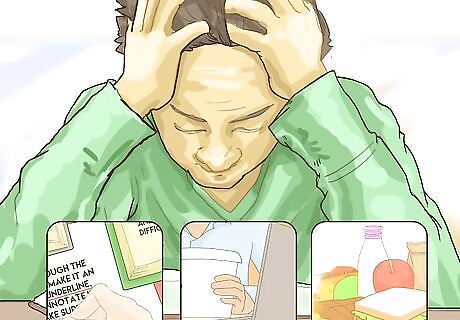
Make your own memory test. Evaluating your memory requires you to test it. These can be visual based, recall centered, or spatial related. Each of these will help you focus on different parts of your memory to help determine how it is. You can make these tests at home for yourself, such as: Memorize a tray of 10 to 20 items for one minute then write down as many of the items as you can remember. Look over a collection of items, have a friend remove an object or two while you aren’t looking, then determine what is missing. Learn flashcards with certain words or phrases and then try to remember them without looking.

Take an online memory test. A great way to evaluate your memory is to take a free memory test online. There are many free memory tests online that can help you evaluate how good your memory is. Often these will ask you a series of questions that are meant to help test both your short term and long term memory. Knowing the kind of memory that is affected can help you figure out and start working on the right kind of memory training and/or making necessary lifestyle changes. You can also take tests specifically to evaluate either part of your memory. Be careful of the tests you trust online. There are many tests online that are not appropriate or backed up by any medical expertise. Instead, look for tests given out by hospitals, universities, or other respected organizations. For example, you can take the SAGE test given by Ohio State University, which combines simple questions, spatial reasoning, and other baseline questions to determine the current state of your memory. Once you take it, you can take it to your doctor for help with interpreting how to read your results. If the test shows that you mainly have short-term memory problems, focus on attention training exercises or decreasing daily distractions, decreasing stress, and improving your diet. Long-term memory improvement focuses on brain deficiencies and treating diseases.

Engage in memory training. You can train your brain to increase or strengthen your memory. This may help your brain with its natural ability to compensate for memory loss or issues. These methods include brain strengthening: Computer games or software Brain teaser games Cognitive behavior therapy aimed at memory

Track changes over time. In order to determine if your memory is changing or getting worse, you should create a baseline for your memory the way it is now and evaluate if it changes over time. This will help you determine how your memory is changing and in which ways. You can use a memory test and take it a month or two apart, then compare the results. If the your results vary greatly, you may have a memory problem.

See your doctor. If you notice any change in your memory, you should see your doctor as soon as you can. Early detection is the best way to reverse or slow down any memory problems as soon as you can. Your doctor will be able to do a more in depth analysis of your memory and help you decide the best course of action to take. Make sure you make note of the types of changes your memory has undergone and how it has impacted your life. This includes keeping track of how often your memory fails, how much it has impacted your life, and any other changes you’ve noticed in your health.















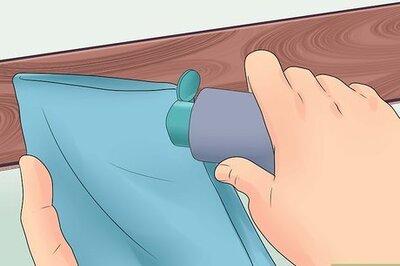
Comments
0 comment